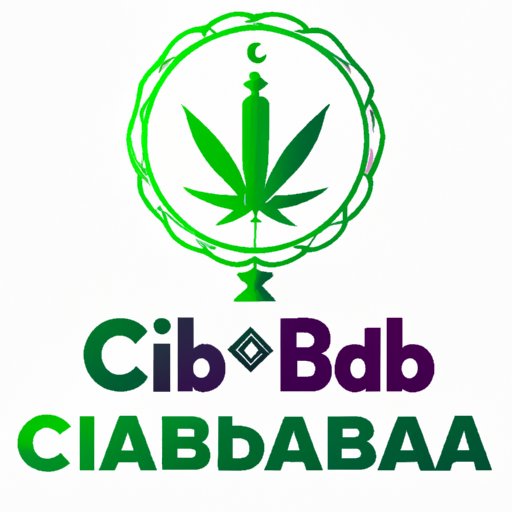Introduction
CBD has become increasingly popular in recent years, with many people touting its benefits for various medical and therapeutic purposes. However, for Muslims who adhere to halal guidelines, there may be questions about whether CBD use is permissible according to Islamic tradition. This article aims to explore the intersection of Islamic tradition and cannabis use, specifically focusing on the question of whether CBD is halal or not.
Overview of Halal
Halal refers to any action or item that is lawful and permissible according to Islamic tradition. This concept is rooted in the belief that God has set guidelines for Muslims to follow, including what they eat, how they worship, and how they interact with others.
In order for a product to be considered halal, it must go through a certification process that ensures it meets certain standards. This process includes examining the ingredients of the product, as well as the production and sale processes, to ensure that they comply with halal guidelines.
When it comes to incorporating CBD into halal guidelines, there are varied perspectives and opinions. Some argue that since CBD is derived from a plant and does not contain THC, it should be considered halal. Others argue that since CBD is often used for recreational and therapeutic purposes, it goes against the spirit of halal guidelines.
Science of CBD
CBD, or cannabidiol, is a chemical compound found in the cannabis plant. Unlike THC, which is another compound found in cannabis that is psychoactive and can cause a “high,” CBD is non-psychoactive and does not produce any intoxicating effects.
There have been numerous studies conducted on CBD, and it has shown promise in treating a variety of health conditions, including chronic pain, anxiety, and epilepsy. CBD works by interacting with the body’s endocannabinoid system, which is responsible for regulating various bodily functions such as mood, appetite, and sleep.
While some may argue that the use of CBD for recreational purposes goes against halal guidelines, there is no clear evidence that suggests its medical use conflicts with Islamic tradition.
Religious Considerations
Islamic teachings and traditions related to cannabis use are complex and vary based on interpretation. While there is no explicit prohibition against cannabis use in the Quran or hadith, there are general principles that can be applied to the issue.
Some argue that cannabis use goes against Islamic teachings related to maintaining one’s health and avoiding intoxication. Others point to the potential medical benefits of cannabis and argue that its use falls under the principle of maslaha, or public interest. Ultimately, the decision on whether CBD use is halal or not is up to personal interpretation and belief.
Industry Standards
Currently, there are no universal regulations for CBD products, and the standards for halal products vary by country. In general, halal certification processes focus on examining the ingredients of products, as well as the production and sale processes, to ensure they comply with Islamic tradition. However, opinions on whether CBD use is halal and how it should be regulated vary.
In countries where cannabis use is legal, there are regulations in place for CBD products to ensure their safety and quality. However, in countries where cannabis use is illegal, the sale and use of CBD products may be restricted or prohibited altogether.
Personal Experiences
While there is no clear consensus on whether CBD use is halal or not, there are many Muslims who use CBD for medical purposes. In interviews with individuals who use CBD, many expressed that they did not believe its use conflicted with their adherence to halal guidelines.
However, it is important to note that personal experiences and beliefs do not necessarily reflect universal truths. Ultimately, the decision on whether CBD use is halal or not is up to personal interpretation and belief.
Laws and Legalities
The laws and regulations related to CBD use and halal certification vary by country and can be influenced by local politics and culture. In some countries, CBD use is legal and regulated, while in others it is illegal and punishable by law.
There are also variations in how halal certification is conducted and what standards are required. It is important for individuals to research the laws and regulations in their country or region to determine if CBD use is legal and how it aligns with halal guidelines.
Alternative Remedies
For those who are concerned about whether CBD use is halal, there are alternative remedies that may be considered permissible. These remedies include herbal and natural remedies, such as honey, black seed oil, and ginger, that are commonly used in traditional Islamic medicine.
While these remedies may not have the same level of scientific research supporting their effectiveness, they have been used for centuries and are generally accepted as halal.
Conclusion
The question of whether CBD is halal is complex and influenced by personal beliefs and interpretations. While some argue that CBD use conflicts with Islamic tradition, there is no clear evidence that suggests its medical use goes against halal guidelines.
Ultimately, it is up to individuals to research and determine whether CBD use aligns with their personal beliefs and interpretation of Islamic tradition. It is also important to consider the laws and regulations in their country or region, as well as alternative remedies that may be considered halal.
By exploring the intersection of Islamic tradition and cannabis use, individuals can make informed decisions about their health and well-being.
